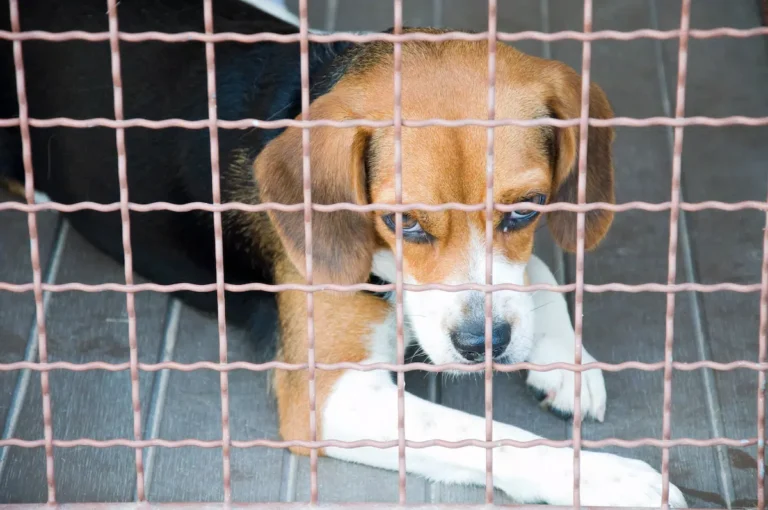
While the United States Deserves Plaudits for Shutting Down Massive Contract Breeding Facility, National Policy is Needed to Protect Beagles from Needless Animal Testing
By Wayne Pacelle
Founder
It was a welcome and exciting enforcement action: the U.S. Department of Justice, after undertaking an investigation, shut down a contract dog-breeding facility in rural Virginia and ordered the release of more than 4,000 beagles who would have otherwise been destined for invasive experiments in laboratories, mainly for drug development.
The dogs in need had been living in filth at Envigo, and investigators reported that the breeding facility was “failing to meet the minimum standards for handling and housing the beagles” and “allowed beagles to die from malnutrition, treatable and preventable conditions.….” There were 300 puppies found dead from “unknown causes” in a six-month period and an additional 173 beagles dead in such a state of decomposition that made forensic work impossible.
While it’s a just outcome for the dogs, it’s no substitute for systemic reform. The truth is, 59,000 dogs are used in lab experiments every year, and Envigo beagles removed from the laboratory pipeline represent about 7 percent of dogs used in tests. The other contract breeding facilities will fill that gap without any difficulty – meaning that 4,000 beagles will be born at other contract-breeding labs because demand for the animals in labs is inelastic. There is a federal mandate for animal testing for new drugs, and that means that demand is unlikely to change unless the federal testing mandate is lifted.
To remedy the problem, our nation must pass the FDA Modernization Act, which will remove a 1938 mandate to test new drugs on animals, and grant researcher the modern option to use technology instead. The Senate passed the legislation, introduced by Senators Rand Paul, R-Ky., and Cory Booker, D-N.J., passed that chamber at the end of September, and the measure is posed to pass the House before the end of the year.
When the FDA accepts non-animal testing data, we will see thousands of beagles spared and no corresponding surge in the use of other animals elsewhere. We’ll see an across-the-board reduction in the use of dogs, primates, rabbits, mice, and other creatures.
The data is clear on this issue. Animals are not good subjects for modeling human disease. An analysis of the most comprehensive quantitative database of publicly available animal toxicity studies suggests that drugs that pass muster in animal tests fail in human clinical trials 90-to-95 percent of the time.
The good news, though, is that almost all major research organizations, pharmaceutical companies, academic institutions, and even government agencies have embraced the broadly accepted construct of the “3 Rs” approach – Reduction, Refinement, and Replacement – to animal testing.
Because animal testing is more costly, slower, and less reliable than alternative methods, the bill will have the effect of easing suffering and averting death for millions of people and nonhuman animals.
The legal action against Envigo reminds us that the suffering of animals starts long before the animals reach the labs. It also reminds us that until we change the law, we are just moving the deck chairs on the Titanic when it comes to our compassionate concern for beagles and other animals.
Amending that Depression-era law in a smart way offers the prospect of ushering in desperately needed cultural and scientific changes at the FDA and within the entire drug development sector, and enduring safety for tens of thousands of beagles.
Other NLEC News

The data is clear on this issue. Animals are not good subjects for modeling human disease. An analysis of the most comprehensive quantitative database of publicly available animal toxicity studies suggests that drugs that pass muster in animal tests fail in human clinical trials 90-to-95 percent of the time.